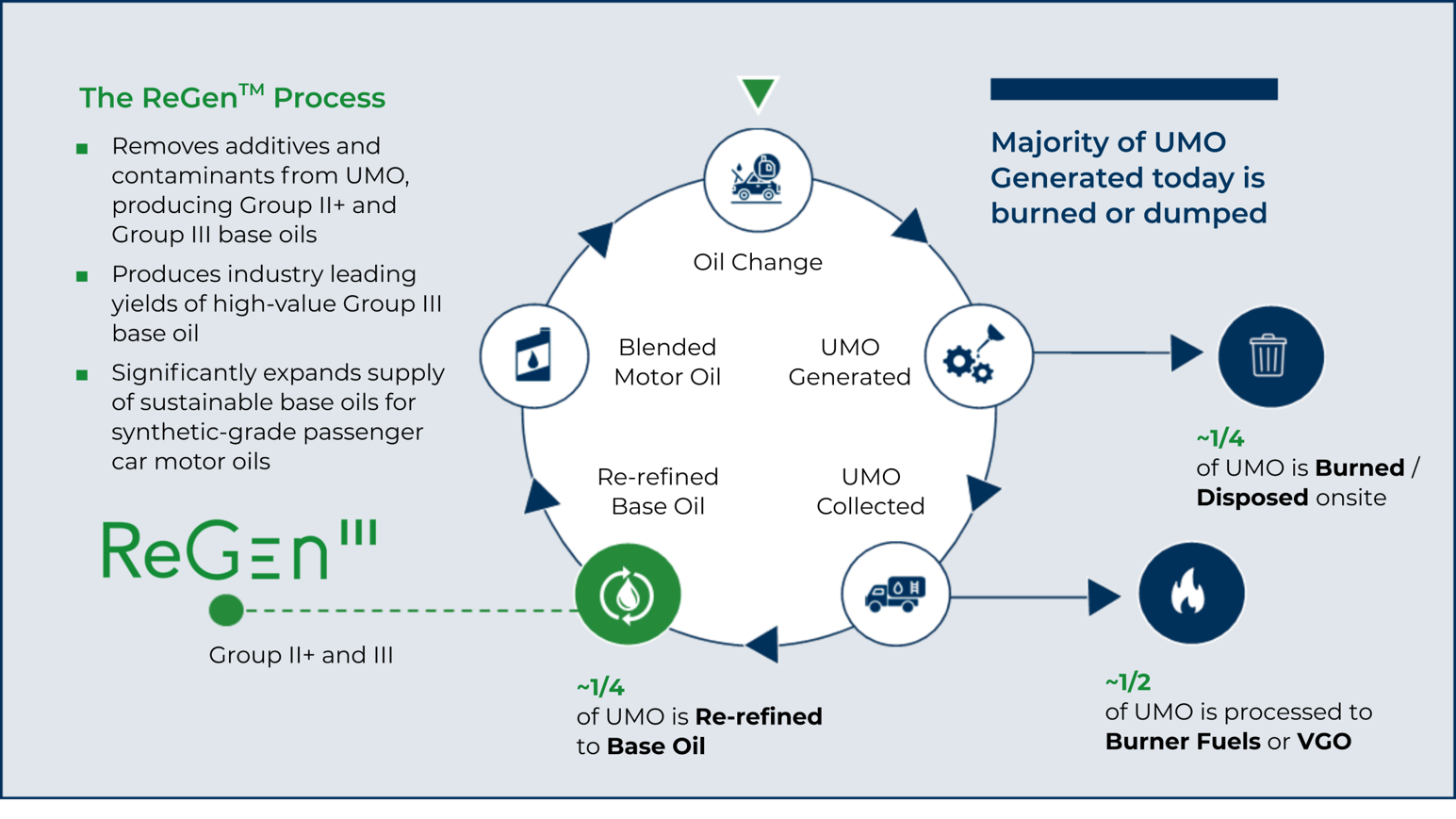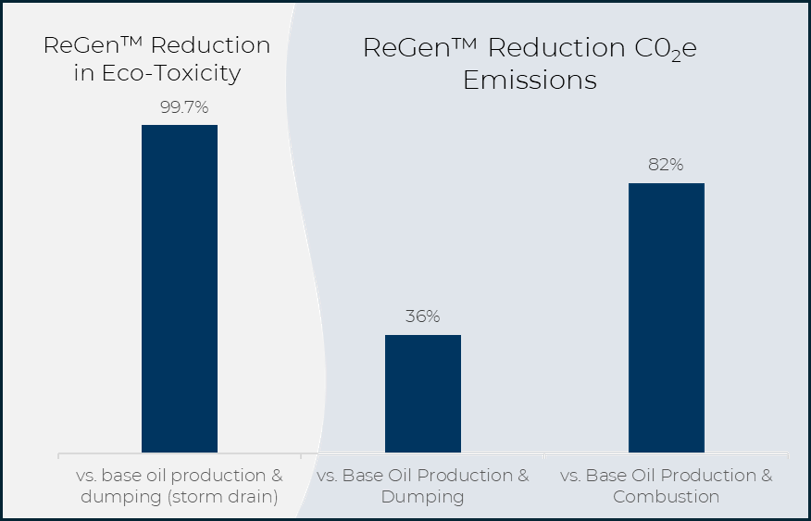Re-refined Base OilsBase oils are traditionally produced from virgin crude oil and used in lubricants like passenger car motor oils. Over time, lubricants degrade and need replacement, but underlying the base oils can be recovered through re-refining as they do not wear out. Re-refining removes spent additives and contaminants, restoring the base oil so it can be used in new lubricant formulations.
|
2/3of major lubricant companies have made public commitments to reduce emissions or reach net zero³ |
1. Used Oil Management and Beneficial Reuse Options to Address Energy Savings from Lubricating Oil Public Law 115-345” (available at energy.gov), Company estimates
2. Lubes’n’Greases, Company reports
3. Company reports. ReGen III estimates.
Used Motor Oil (UMO) Lifecyle

Source: Used Oil Management and Beneficial Reuse Options to Address Section 1: Energy Savings from Lubricating Oil Public Law 115-345” (available at energy.gov). 2024 value based on 2008 – 2018 growth rates and data, extrapolated from 2018
ReGen™ Impact
As blenders and oil marketers actively seek re-refined Group III base oils to reduce their cradle-to-grave carbon footprint and meet their ESG goals, the ReGen™ process offers a sustainable alternative and achieves the following outcomes based on the Company’s proposed Texas City Project:
ReGen III meets the following UN Sustainable Development Goals: 8, 9, 12, 13 and 14. |
 |
Source: GHD Services Inc. Greenhouse Gas Statement: ReGen III Report dated June 14, 2022; Used Oil Management and Beneficial Reuse Options to Address Section 1: Energy Savings from Lubricating Oil Public Law 115-345” (available at energy.gov). Management estimates.
